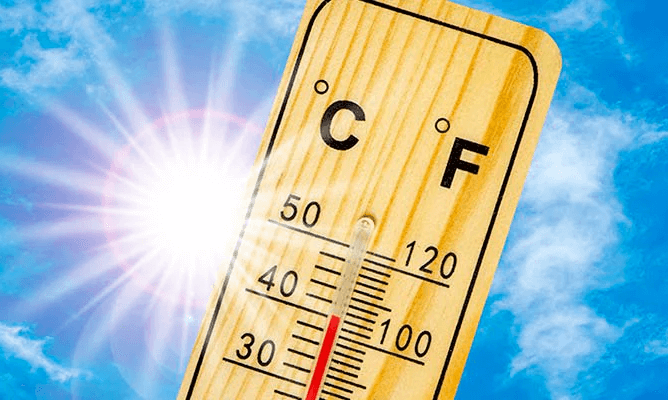

Jun 23 2025
Heat & High School Sports


Summary
Coaches, parents and teachers must be vigilant. It’s vital to mitigate these dangers and pay attention to warning signs of heat-related illness.
It is always exciting to embark on football season here in the South. The Friday night sounds, smells and lights are a tradition that we associate with this time of the year.
I remember going through two-a-day practices in Bruce in the late 90s. Those were some tough days certainly, but I would not trade anything for that time with my teammates. Sports calendars can be unforgiving with late summer heat and humidity. Students who participate in all types of outdoor fall sports are at risk.
Conditioning drills can be dangerous if not accompanied by adequate hydration and cooling-off periods. While the preseason is necessary to build stamina for the upcoming schedule, we must be sure to proceed safely.
As teams take to the field, coaches, parents and teachers must be vigilant. It’s vital to mitigate these dangers and pay attention to warning signs of heat-related illness.
The Mississippi High School Activities Association adjusts kickoff times for early season varsity football games according to heat threats. In addition, heat/water timeouts are required in each quarter.
Screening
The American Academy of Pediatrics provides a pre-participation screening tool that can help identify conditions that may be more prone to heat-related illness.
Risk factors include:
- Previous heat-related illness
- Poor physical fitness level
- Lack of heat acclimatization
- Excessive or inappropriate clothing
- Protective equipment
- Inadequate sleep
- Excessive motivation
Medical conditions that may predispose someone to heat-related illness are:
- Obesity
- Recent illness with fever
- Gastroenteritis
- Sickle cell trait
- Sweat gland dysfunction
- Sunburn
- Poorly controlled diabetes and hypertension
- Cardiovascular disease
- Cystic fibrosis
Signs & Symptoms
Continuously monitor players and staff for signs of dehydration and heat exhaustion/illness. Muscle cramps are common and often the result of excessive sweating and electrolyte imbalance. During preseason practices, it is not uncommon for players to lose 3-5 pounds of water through sweat. Some college athletes report 5-10 pounds of water losses in fall camp. Plans must be in place to rehydrate players adequately and safely.
Nausea/vomiting, dizziness and fainting could be signs of heat exhaustion, which requires medical attention.
Heat stroke is life-threatening; it causes impaired consciousness, skeletal muscle damage and multiple organ system damage. The increased body temperature is extremely dangerous to our organs and must be remedied as quickly as possible. The quicker the intervention, the less risk of organ damage.
Rhabdomyolysis (also called “rhabdo”) is a medical condition associated with heat stress and prolonged physical exertion. Rhabdo causes the rapid breakdown, rupture and death of muscle. When muscle tissue dies, electrolytes and large proteins are released into the bloodstream, which can cause irregular heart rhythms, seizures and kidney damage. Symptoms include cramps/pain, abnormally dark (tea or cola-colored) urine, weakness and exercise intolerance. Urine discoloration should be reported to coaching or athletic staff.
Treatment
If you notice signs of heat-related illness, remove the person from activity. Get him/her to rest in a cooler area, drink cold liquids, loosen clothing and remove gear. Apply ice packs to groin, neck, back and armpits to lower the person’s body temperature.
If there is no improvement, take additional measures and seek medical attention. Emergency personnel can administer IV fluid and deploy rapid cooling procedures (like cold water immersion) to lower body temperature, decreasing the risk of organ damage.
If loss of consciousness or change in motor function occurs, call 911 immediately.
Preparation
To prepare for the heat:
- Drink plenty of fluids
- Acclimate to the heat by gradually increasing the amount of time
- Ensure adequate nutrition
- Rest
- Stretch to help prevent muscle cramps
- Warm-up and cool-down to get the body acclimated to increased activity
- Have plans and supplies in place to treat heat illness
Coaches and teachers advocate for our students; we must be aware that they are also prone to heat-related illness. We all need to be on the lookout for signs of trouble in each other.
Safety should always be top priority. Good luck to all area teams. Have a safe season!


Bill Malone, MSN, FNP-C
Bill Malone is a nurse practitioner with Relias Healthcare who practices in North Mississippi Medical Center's Emergency Department in Tupelo. He previously worked as a flight nurse with NMMC's CareFlight. as well as with the Critical Care Transport (CareFlight Ground), Critical Care Unit and Pediatric Intensive Care Unit. Bill joined NMMC in 2004 as a respiratory therapist and became a registered nurse in 2011.
CareFlight medical helicopter provides critical care transport services in north Mississippi and northwest Alabama.

Subscribe to Our Newsletter
Like this content and want to get more? Sign up for True North, the health and wellness newsletter from North Mississippi Health Services!

Subscribe to Our Newsletter
Like this content and want to get more? Sign up for True North, the health and wellness newsletter from North Mississippi Health Services!

Nurse Link®
Not sure if you need Urgent Care or the ER? Call 1-800-882-6274 anytime to speak directly to a registered nurse and get immediate answers. Using computerized medical protocols, nurses direct callers to the most appropriate treatment. Our nurses are available 24 hours per day, seven days per week.